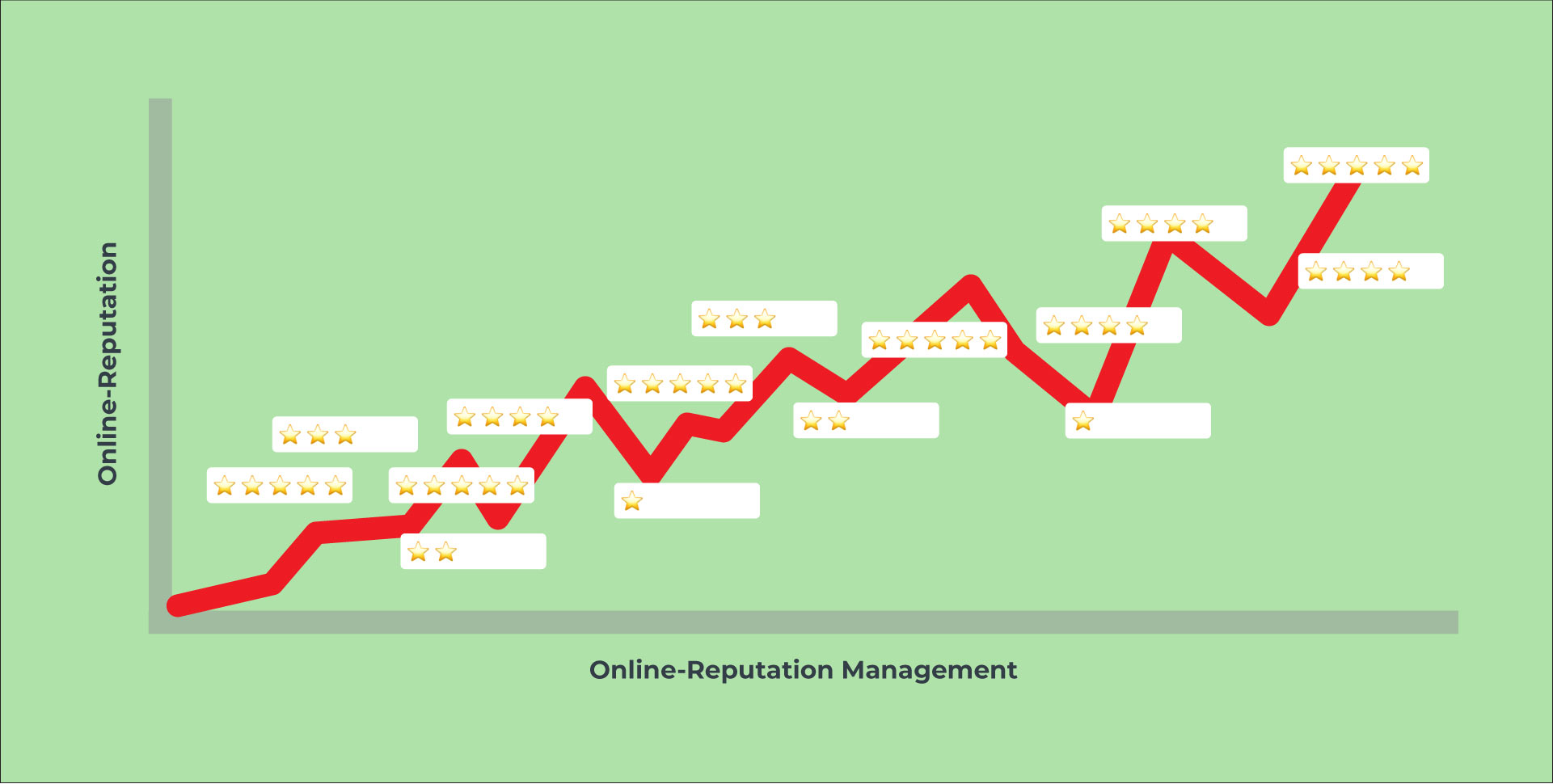Particularly in Switzerland, where trust and discretion have traditionally been the cornerstones of banking, customers’ perception of quality and service directly influences their willingness to enter into a long-term relationship with a financial institution. A strong reputation not only promotes customer trust, but also strengthens a bank’s competitiveness and resistance to crises.
The Importance of Online Reputation for Banks
In today’s digital age, 87% of consumers seek out online reviews before making purchasing decisions.
“94% of consumers trust companies with at least four stars.“
BrightLocal
These figures illustrate the immense role played by platforms such as Google Reviews and Trustpilot. For banks, a strong online reputation means
Building trust:
Customers look for financial institutions that are considered trustworthy. Positive reviews and comments promote this trust.
Attracting new customers:
A strong reputation leads to higher visibility and therefore faster and more favorable customer acquisition.
Crisis prevention:
Negative comments or press can quickly go viral. Proactive management is crucial to prevent reputational damage.
“Google is the most important review site. Zero-click search, which rose to 65% in 2020, means that more users than ever are reading Google reviews directly from search results.“
ReviewTrackers
Challenges in the Swiss Banking Sector
Switzerland offers a unique environment that presents both opportunities and specific challenges for reputation management:
Strict regulations and high expectations:
Swiss banks are known for their high standards, which puts them under particular pressure to meet these expectations at all times.
Negative reviews and their impact:
Studies show that negative experiences have a 2.4 times stronger influence on perception than positive ones. This so-called Negative Bias is particularly pronounced in the Swiss banking sector: customers share negative experiences more frequently than positive ones, which tends to be reflected in poorer Google ratings and significantly increases the risk of reputational damage.
Globalization and digitalization:
Pressure from international competitors and new banking concepts such as neon banks is forcing banks to optimize their digital presence.
Strategies for improving Online Reputation
Banks can take the following measures to safeguard and strengthen their reputation:
Proactive reputation management:
Active responses to customer feedback demonstrate commitment and professionalism.
Targeted incentives for reviews:
Use strategies to encourage positive reviews. These include targeted follow-up questions after a customer discussion or the use of solutions that specifically activate satisfied customers.
Monitoring and data analysis:
Tools for monitoring customer perceptions help to identify and address trends early on.
Transparent communication:
Honest and clear statements, especially in times of crisis, are essential.
Digital customer experience:
Investing in user-friendly apps and websites as well as excellent online support is essential.
Dealing with Negative Reviews
Well thought-out crisis management is essential in order to handle negative reviews effectively.
Empathetic and quick responses:
Prompt responses show customers that their concerns are being taken seriously.
Transparency and problem solving:
Honest communication and offering help to regain trust.
Learning processes from feedback:
Negative feedback can be used as an opportunity to improve services.
Long Story Short
In a highly competitive market like Switzerland, maintaining an online reputation is not an option for banks, but a necessity. Institutions that make targeted investments in their digital presence and transparent communication secure long-term advantages in terms of customer loyalty, trust and market position. Banks that consistently pursue this path not only become more resilient to crises, but also more attractive to new customers and investors.





